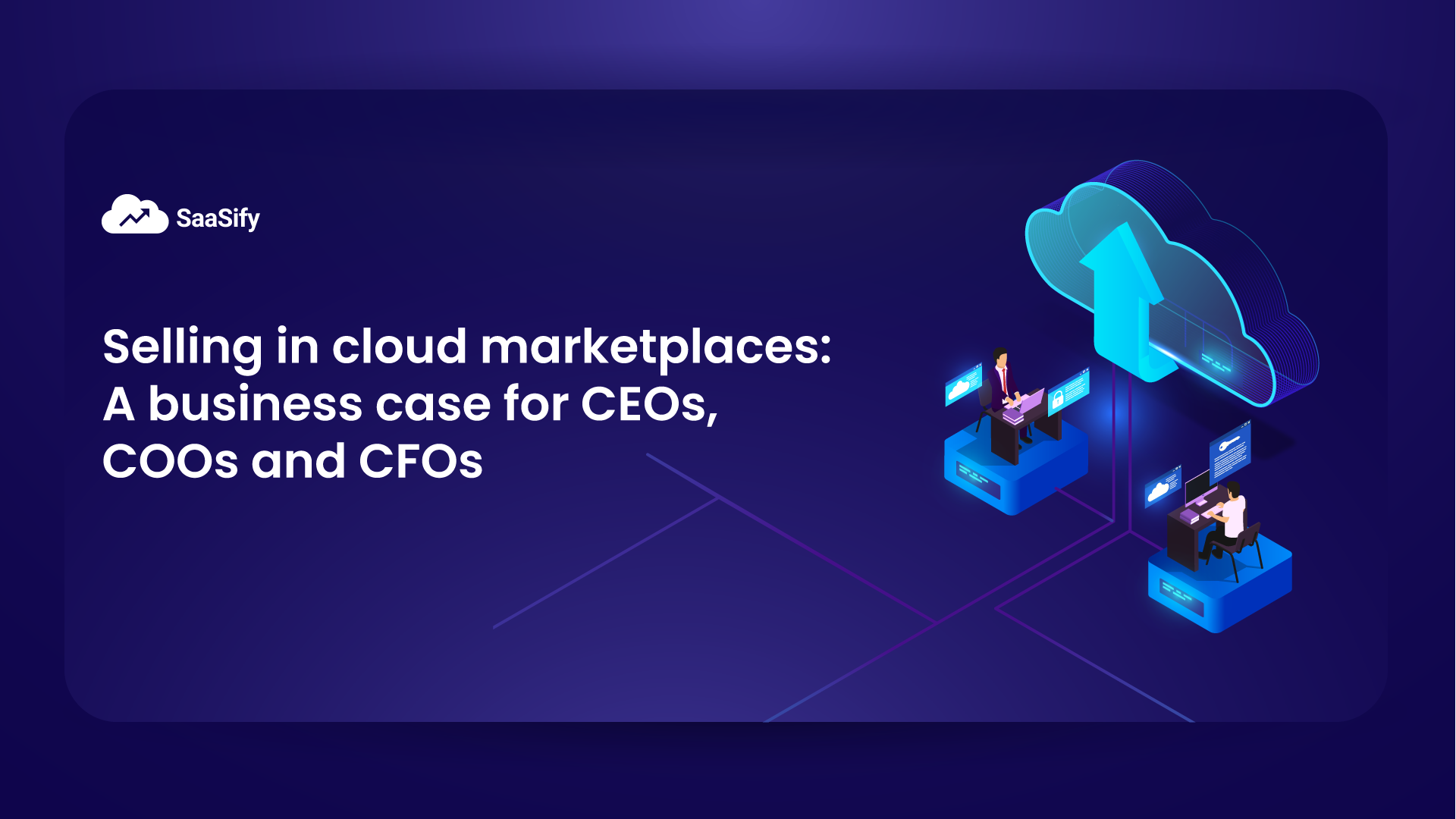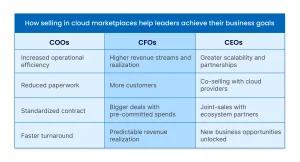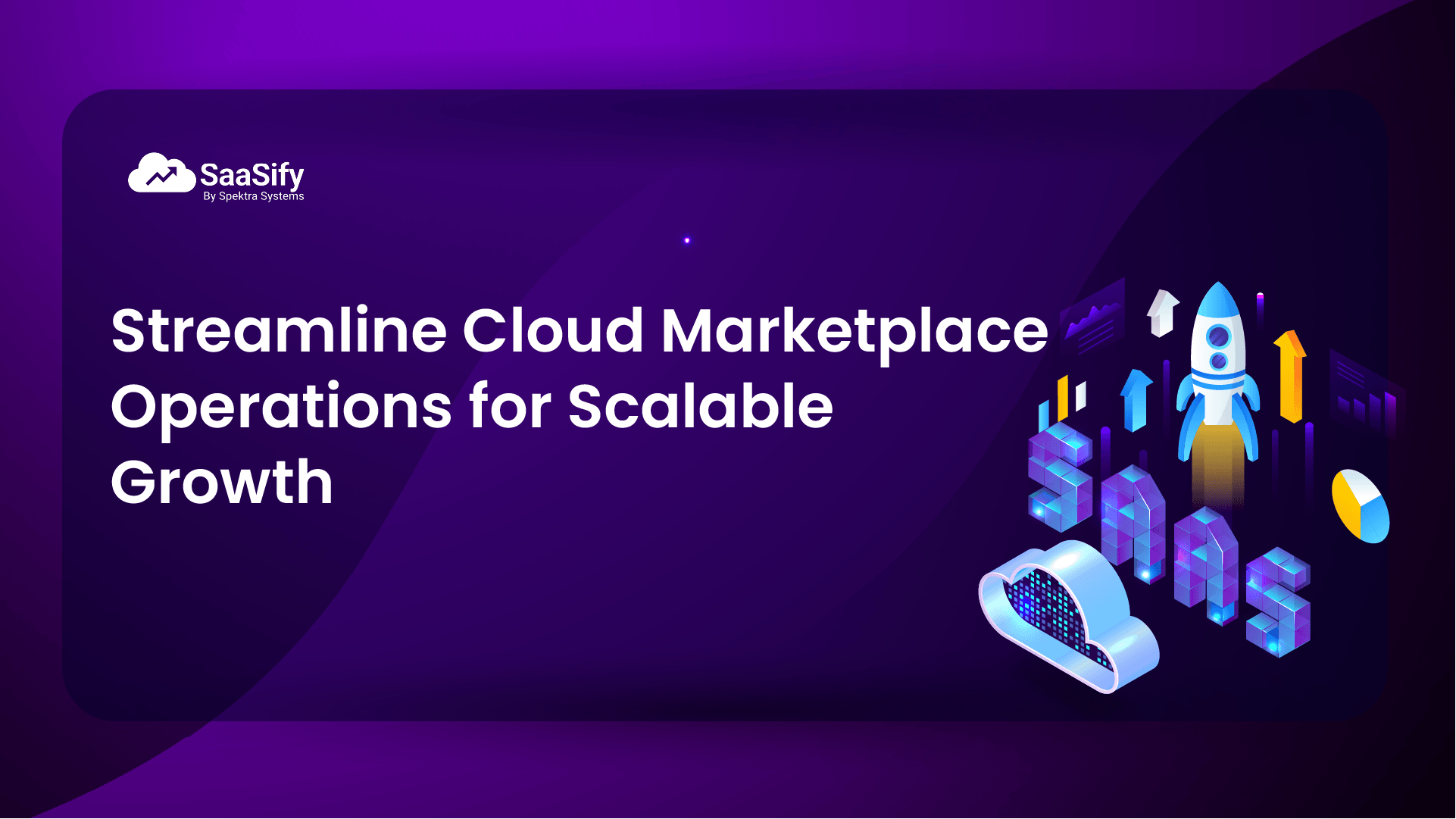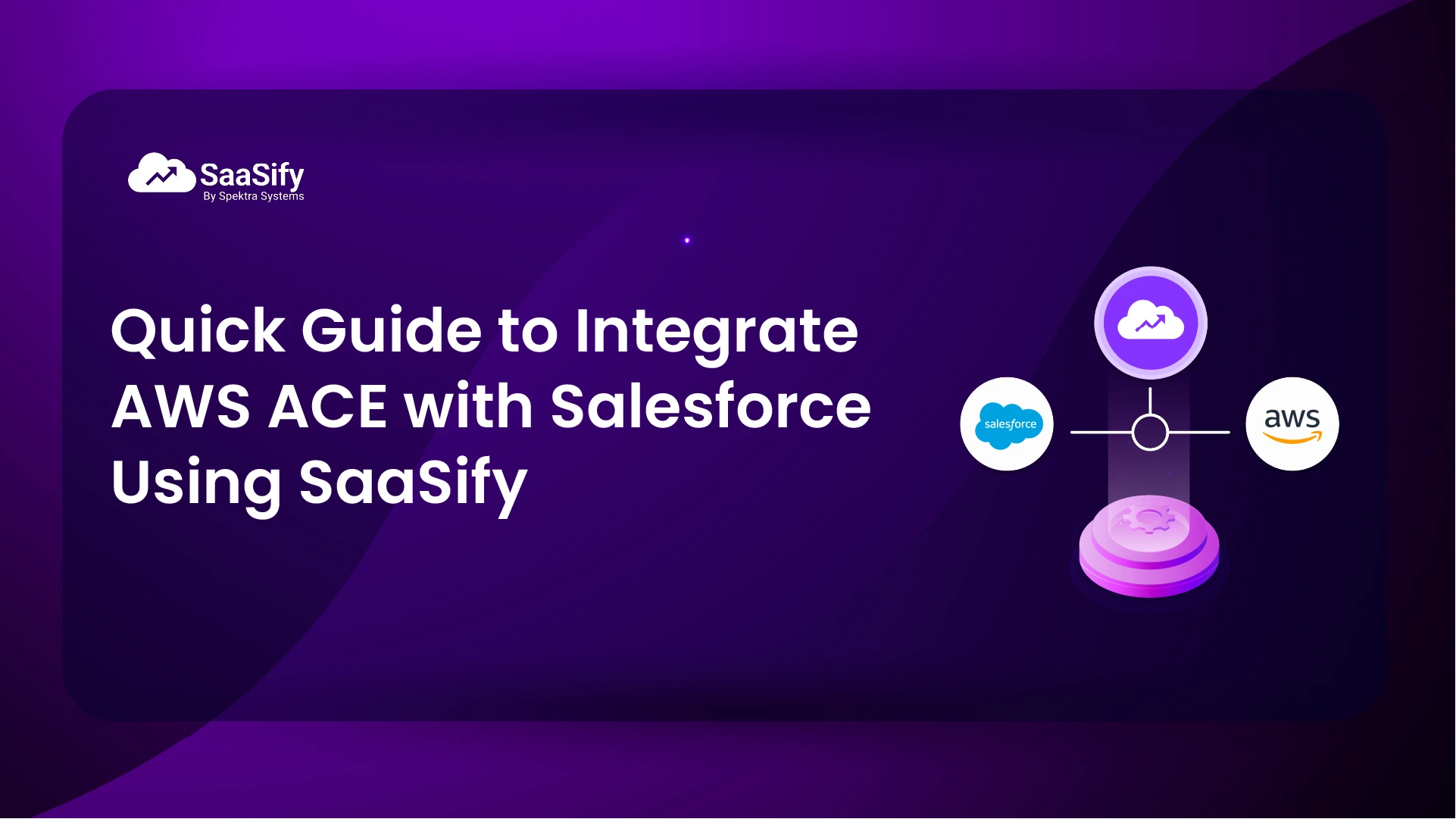Selling in Cloud Marketplaces With SaaSify
SaaSify can help you capitalize on transactable offers and co-sell opportunities, unlocking full revenue potential of cloud marketplaces with:- Self-service portal to list, manage, and transact your SaaS offerings on Cloud Marketplaces
- White-glove onboarding and guidance by Partner Success Managers for public/ private offer listing and initial transactions
- No-code public offer listing of SaaS products for public cloud users to discover and purchase
- Private offers with special pricing tailored to specific customers
- MS Teams/Slack integration to receive notifications and alerts for Cloud Marketplace transactions in Microsoft Teams or Slack
- Deal assistance from Spektra marketplace experts to guide your cloud sales journey
- Marketplace reporting and insights for real-time visibility into sales, payments, subscriptions, and margins with advanced reporting and reconciliation capabilities
- Co-sell readiness and advisory to make your listing ready for co-selling with cloud providers for higher deal closure
- CRM integration (HubSpot, D365, Marketo) to sync your CRM systems with SaaSify to maintain consistent deal status across all platforms
- Salesforce App & integration (Quote to Cash) to create and transact Private Offers directly within Salesforce using the SaaSify Salesforce App




















